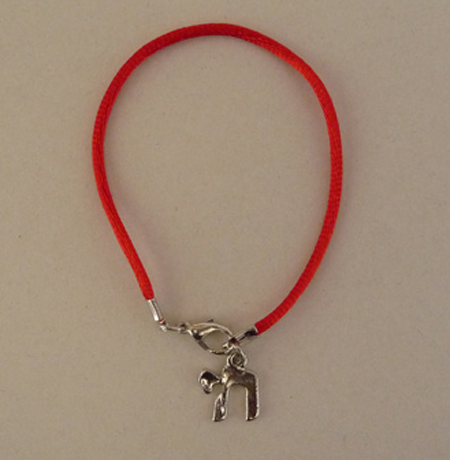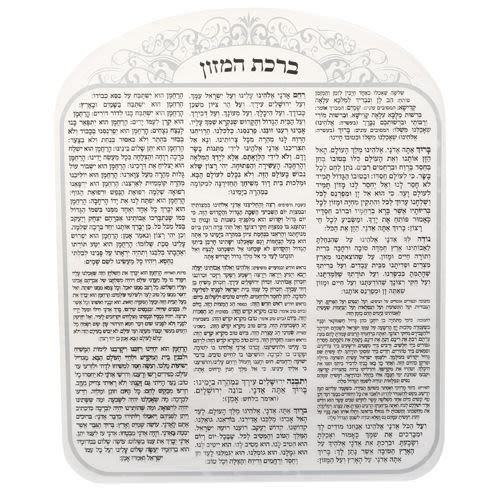
The Betrayer
“I had a desire to pursue the truth, to come closer to God's Land and His chosen people. I had an urge to leave the institution that made me feel as if I were a betrayer…”

Strangers No More, Part 8
“I had an urge to leave the institution that made me feel as if I were a betrayer.”
Religion was not a “hobby” for me – it was my profession and my whole life. I was not a private person who could separate my faith from my public life. It might be possible to play the role of the good minister, even if the minister’s personal beliefs differ from the teachings of the Church. For me, however, this was not a solution. My faith was my livelihood. If I couldn’t believe it, I couldn’t teach it. When I started to doubt the basic teachings of the Church, and the validity of certain sacraments, I gradually lost my ability to perform. Slowly but surely it became more and more difficult for me to perform the sacraments of baptism and communion and to deliver a sermon.
What amazes me is the fact that the cards were on the table, all the time, yet I never saw them. I learned to critically question the text of the Bible, but did not raise an eyebrow over the fact that this great institution officially taught about a Triune God that was nowhere to be found in the Holy Book. Every ceremony and service in the Church starts and finishes in the name of the Triune God. That is, “the name of the Father, Son and Holy Spirit.” The name itself is not mentioned, but this formula is always repeated. So too, the Aaronic benediction was instituted as the formula used by Christian ministers as blessings at every wedding, baptism or funeral service. The original formula for this blessing is found in the Tanach in Numbers 6, when God tells Moshe to tell Aaron how to bless the children of Israel.
“The Lord bless thee and keep thee;
The Lord make his face shine upon thee, and be gracious onto thee;
The Lord lift up his countenance to thee and give thee peace.”
The Church adopted this formula for conveying the divine blessing to its people, but not without making some changes, of course. The original text is used in full, but the formula for the Triune God is added at the end. By examining the original context of this formula, we learn that the Cohanim, the Jewish priests, by using this blessing, put the name of Hashem on the Israelites. “And they shall put My name upon the children of Yisrael and I will bless them” (Num 6:27). The Church is not blessing its people in the name of only one God but in the name of the Triune God – God the Father, God the Son and God the Holy Spirit.
I remember as a child, every spring I would observe migrating birds in our garden. We were always waiting for them; when they came it was a sign of spring, and that meant the summer was near. I always wondered where these birds really lived, since they came to us only for a short visit. They built their nests, as if in a hurry, knowing that the Finnish summer is very short. One day soon after, we would see the young birds flying out of their nests. The summer had passed its peak, and we saw flocks of swallows, starlings and wagtails on their way south. Imagine, these birds are born in the Scandinavian summer, and when the fall approaches, they know it is time to leave, and they fly away, led only by instinct. They were born in Finland, and have never been to their new destination, yet these birds still know that they belong somewhere else, and they leave for a warmer place.
The same applies to me I feel as if I had just paid a short visit to the country of my birth and made a brief incursion into a strange religion called Christianity. I had a desire to pursue the truth, which I had begun to see, a desire to come closer to God's Land and His chosen people. I had an urge to leave the institution that made me feel as if I were a betrayer. That’s not to say that I blame the average Christian church-goer. Everybody needs religiosity in his or her life. The customs and traditions of Christianity make life seem beautiful throughout all the various life cycle events, and even in death, and the fellowship is uplifting, healing and comforting.
Yet in the midst of all these strong traditions, where is the search for truth? Where is the drive for consistency in the theological manuscript among the leaders? The ministers and the Bishops possess the knowledge and the history, they study the Tanach and they are exposed to the inconsistencies spelled out in the text.
After more than a decade outside the Christian Church, with half of that time spent living in Israel as a Jew, I have had the opportunity to reflect on the issues that became the obstacles to my continuing with the Church. It became crystal clear to me that the Church is not based on truth found in the Holy Book. The decision of one family might not have much impact in the world; the Christian Church has, after all, thrived for 2,000 years. Still, I maintain that the evidence I have against the Church, as a true institution, is very strong. The big surprise is where most of this evidence is to be found: in Christianity’s own writings, the so-called New Testament. My faith is probably the greatest asset God gave me. Therefore I believed in what I had discovered, and I realized that these discoveries were to have consequences. Yet it was not enough to believe, I also had to act.
After weighing all the options there was one thing that tipped the scale in favor of my leaving the Church – inner conviction or instinct. I felt a strong drive that once and for all pushed me out of the large institution that is Christianity.
The Tanach hints at an instinct in animals that drove them to enter the Ark of Noah. In Parashat Noah (Gen 7:1–10), we are told how Noah was commanded to enter the Ark with his family because the Flood was about to begin. To save not only human life, but also the lives of all living things, he had to bring into the ark one pair of each animal according to their species. “Of the clean (kosher) animal, of the animal that is not clean, of the birds, and of each thing that creeps upon the ground, two by two they came to Noah into the Ark, male and female, as God had commanded Noah” (Gen 7:8–9). Ramban comments that God caused one pair of each species to instinctively find refuge in the Ark.
Without delving into an in-depth analysis of the history of the Church, there are plain and simple examples of how a small Jewish sect, hoping for the Moshiach in their struggle against the Romans, turned out to be useful to the Romans. Once taken over by pagans during the third and fourth century CE, the Church was turned into a political institution manipulated and dictated by Rome. This tool in itself was used to enhance the power of the state. So powerful was the structure of this newly instituted “tool” that it survived its master, the Roman Empire, and became the new political power player seated in Rome. This institution calls itself the New Israel. The Pope sees himself as the successor to Apostle Peter, who, according to the tradition, was given the keys to heaven and hell, life and death. The one who has the keys holds the power, therefore the Church has had the authority to keep its followers with statements such as “outside the Church – no salvation.” Considering their immense power, it is a pity that the Catholic Church cannot open the Vatican Archive to researchers. It is believed to hold answers to many mysteries and controversial decisions during the long history of this institution, from its early days until the tragic stand by the Church during the Holocaust in our time.
Over the centuries, hundreds of different denominations have evolved from the institution. One of them is the Lutheran Church formed during the late 1500s by Martin Luther, originally a Catholic monk.
Christianity is not a monotheistic religion, although it is generally regarded as such. How could it be monotheistic when there is a choice between praying to God the Father, or to Jesus Christ, or to a third alternative, the Holy Spirit? Does this constitute idol worship? It obviously is not in the strictest sense of the word, since Christians don’t believe that god takes the form of a statue, but believing that a human being is god is also idol worship. This is the opinion of both Ramban and Rabbi Kook. Bowing in front of the crucifix when approaching the altar, in order to receive the bread and wine in the Holy Communion, indicates reverence for this idol. Christians are taught that the visible insignia of this sacrament, the bread and wine, are the body and blood of Jesus. Ask any Christian believer and he will tell you the importance of the Trinity, that God is three. If a Christian betrays any hesitation in the belief that God is three, it is regarded as a lack of faith in the divinity of Jesus. Not embracing the “truth” of Jesus' divinity is the most heretical thought that cannot be accepted. The “apostolic confession of faith,” confessed publicly in every Sunday church service clearly states: ”I believe in God, the Father Almighty Creator of heaven and earth…I believe in Jesus Christ His only begotten Son, born of virgin Mary, conceived by the Holy Spirit…I believe in the Holy Spirit….” Not a single statement that God is One. The Church declares its faith in three gods, but the founder of the faith expresses his faith in ONE GOD, demonstrating how the Church is not even true to the beliefs of its own founder. Once asked what the most important confession is, he simply answered as any Jew would: “Shema Yisrael…Hear O Israel, The Lord our God the Lord is One” (Mark 12:28). But not so his followers.
The Church is not the New Israel, as it claims. Declaring a new covenant, it renders the original covenant null and void. There is a claim in the Christian New Testament that: “By speaking of a new covenant, God has made the first one old, and anything that becomes old and worn out will soon disappear” (Book of Hebrews 8:13). In theological terms this is called “replacement theology.” So where is the real Israel? Strictly speaking it should not exist. Christian scholars admitted in 1948, when the State of Israel was born, that this fact was "a very problematic theological dilemma." As far as I know the “Old” is still alive and well, despite so many enemies and struggles.
It is generally accepted that the universal laws in the Tanach given to all mankind are the seven Noahide laws as explained in Genesis. These laws were imparted to all of humanity after the Flood some 700 years before the Torah was given to the Jews. After the Flood, Hashem promises Noah that He will never again destroy all earthly life with a natural catastrophe. The sign for this covenant was the rainbow in the sky. Corresponding to the seven laws there are seven colors in the rainbow.
A debate in the Book of Acts in the New Testament argues whether or not to impose all the Mosaic Law on the believers of the new faith. The decision taken by the apostles is not to impose all the Jewish laws upon the people, but strictly limit these to the seven Noahide laws as binding for everyone. This is very clear and straightforward, at least so it seems. Still there is confusion in the Lutheran Church, and other denominations as well, as to how to teach this. For example, there is no clear teaching about the prohibition of eating blood, a very clear prohibition in both the Old and New Testaments. In Finland, where much of the population belongs to the Lutheran Church, which still has influence on the daily life of the people, there is no protest when the hot meal served to children in state schools regularly consists of blood patties with lingonberry jam. How could the eating of blood be forbidden when in every communion service the priest encourages the congregation to partake in the Holy Communion and drink the blood of Jesus?
A non-Jew can, but does not have to, convert to Judaism. Converts are accepted, but Judaism is definitely not a missionary religion. In the Messianic era Judaism will no longer accept converts, probably for the same reason that it is too late to take a test after you have seen the results. What are important are the seven Noahide laws as found in Genesis 9. These form the basis for the conduct of human life, both on a private and social level. In Encyclopedia Britannica we find one of the most accurate descriptions of the seven Noahide laws: “…a Jewish Talmudic designation for seven biblical laws given to Adam and to Noah before the revelation to Moses on Mt. Sinai and consequently binding on all mankind.” ( The New Encyclopedia Britannica: Micropedia, 15th ed,vol. 8, p. 737).
1. We are created in God’s image, respect Him, and do not worship an idol.
2. Be careful with your words, do not curse in the name of God.
3. Life is a gift, respect it, do not murder.
4. Do not commit adultery. Value family and marriage as the base of society.
5. Respect the property of others, therefore do not steal.
6. Every creature has a soul, literally “do not eat a limb torn from a living animal.” Show therefore kindness to all creatures.
7. Establish a court system and pursue justice.
To be continued.
(Strangers No More, by Shlomo Brunell. Reprinted with courtesy of Gefen Publishing House 2005 www.gefenpublishing.com)












Tell us what you think!
Thank you for your comment!
It will be published after approval by the Editor.